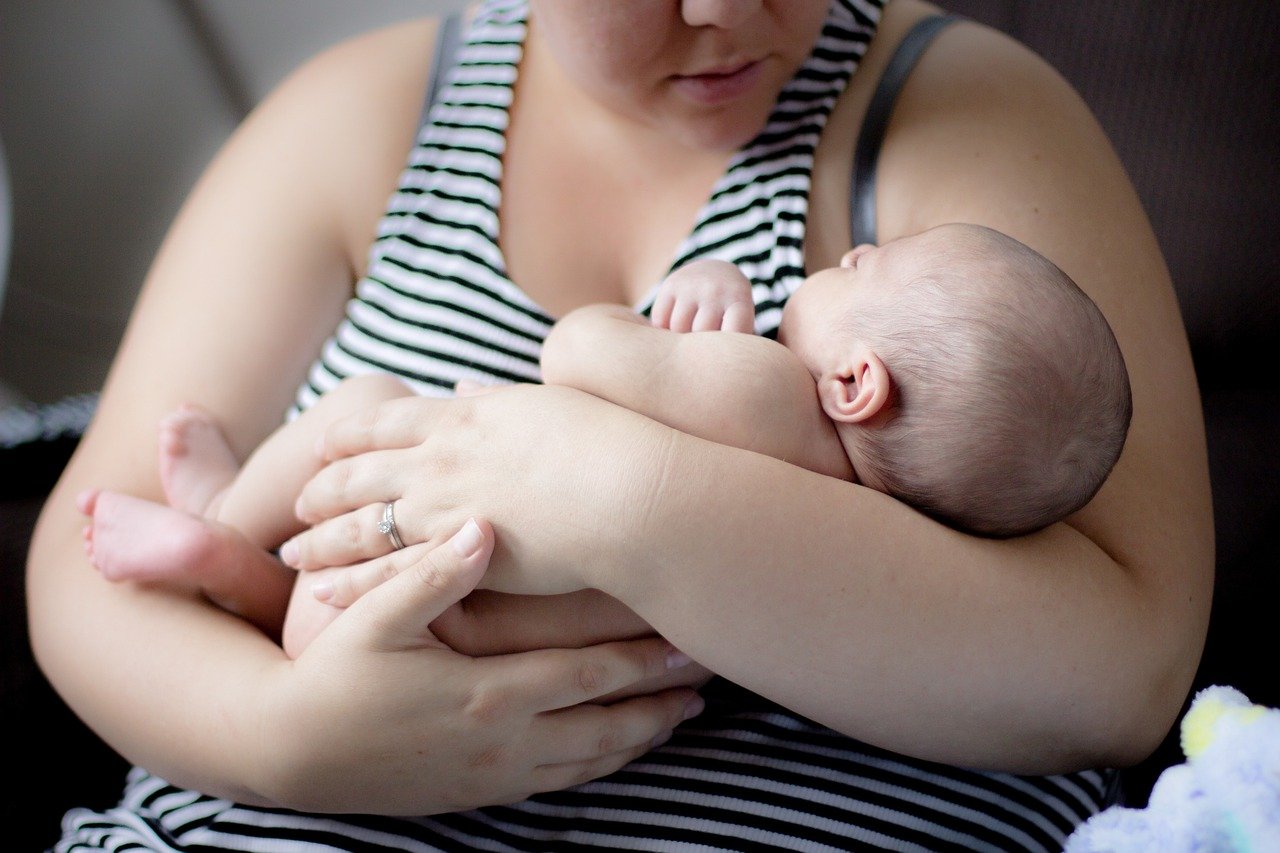Everything that changes for families in Germany in 2024

From receiving greater tax benefits to more easily being able to take off work to care for a sick child, these are some of the biggest changes for families in Germany in 2024.
No more Elterngeld for higher earners
Couples and single parents who welcome a child after April 1st of this year will only receive Elterngeld (parental allowance) if their joint taxable income is less than €200,000, down from a previous maximum of €300,000. In 2025, the limit will fall further to €175,000.
Single parents can receive Elterngeld, which is paid out during Elternzeit (parental leave), up to an income of €150,000.
The move, controversially made to trim down Germany’s 2024 budget, was previously set to apply to a joint taxable income of €150,000, but the limit was pushed upwards amid protests that it would affect too many families and disadvantage working women in particular.
READ ALSO: Elterngeld: How Germany plans to change parental allowance
Less joint parental leave
New parents can now only take paid Elternzeit together for one month instead of the previous two months. They are still allowed to take a total of 14 months of paid leave - which is capped at 12 months if just one parent takes it.
However, one of the two additional months now has to be taken by one parent alone while the other works. The change also applies for parents of children born after April 1st.
READ ALSO: EXPLAINED: Everything you need to know about parental leave in Germany

Elterngeld changes affect both couples and single parents. Photo: Pexels / Pixabay
Additional support for lower-earning families
In addition to monthly Kindergeld (child benefits) payments of €250 per month, lower income families in Germany can submit an application for the Kinderzuschlag, or child supplement payment. As of January 1st, this has gone up from €250 to €292 per child per month.
The increase will be made automatically by the Familienkasse, or family benefits office, meaning that families don’t need to resubmit their applications.
READ ALSO: What benefits are you entitled to if you have children in Germany?
Greater tax-free allowances
As of January 1st, the tax-free child allowance (Kinderfreibetrag) has increased from €6,024 to €6,384.
The change is particularly worthwhile for high earners: the Finanzamt (tax office) looks at each tax return to determine whether the Kinderfreibetrag or Kindergeld makes the most sense.
The tax reduction through the allowance is only more beneficial to parents with a joint income of over €80,000 - otherwise the €3,000 in child benefit parents receive in 2024 ends up being more lucrative.
But all taxpayers will benefit as the basic tax-free allowance goes up to €23,658 for married couples and €11,784 for single people. Income up to these limits remains tax-free.
READ ALSO: The important money and tax changes in Germany in 2024
Child sick notes and pay made easier
Since December 18th 2023, parents have been able to obtain a sick note needed to receive Kinderkrankengeld (child sickness benefit) by telephone without having to go to the doctor's surgery.
As of this year, parents will only need a doctor's certificate for child sickness benefit from the fourth day of sick leave, rather than on the very first day as was previously the case. Payment will be made for up to 15 days per child.
READ ALSO: Germany to relax rules for working parents who need to care for a sick child
More money for school supplies
Parents will receive higher benefits from the so-called “education and participation package” (Bildungs- und Teilhabepaket) to buy school materials for their children.
In the first half of the school year, €130 (up from €116) and in the second half €65 (previously €58) are available to those who apply for the funds. Every state has its own application for the financial assistance, which in many cases can be applied for online.

A teacher of a 4th grade class in Stuttgart helps a pupill. Photo: picture alliance/dpa | Marijan Murat
Higher child support payments
The Mindestunterhalt, or maintenance payment, for separated families is also increasing. In future, maintenance payers will transfer at least the following amounts to the parent who lives with the child most of the time.
- For children up to the age of six: €480 (up from the previous €437)
- For children up to the age of eleven: €551 (up from €502)
- For children aged twelve to 18: €645 (up from €588)
End of the ‘children's passport’
A Kinderreisepass, or children's passport, can no longer be applied for - at least in its previous form. The popular document, which was available for children under the age of twelve, is to be replaced by a normal electronically scannable passport with a longer period of validity and the option to use it for worldwide travel.
This means higher costs for parents, as the electronic passport costs €37.50, which is more expensive than the previous children's passport at €13.
Comments
See Also
No more Elterngeld for higher earners
Couples and single parents who welcome a child after April 1st of this year will only receive Elterngeld (parental allowance) if their joint taxable income is less than €200,000, down from a previous maximum of €300,000. In 2025, the limit will fall further to €175,000.
Single parents can receive Elterngeld, which is paid out during Elternzeit (parental leave), up to an income of €150,000.
The move, controversially made to trim down Germany’s 2024 budget, was previously set to apply to a joint taxable income of €150,000, but the limit was pushed upwards amid protests that it would affect too many families and disadvantage working women in particular.
READ ALSO: Elterngeld: How Germany plans to change parental allowance
Less joint parental leave
New parents can now only take paid Elternzeit together for one month instead of the previous two months. They are still allowed to take a total of 14 months of paid leave - which is capped at 12 months if just one parent takes it.
However, one of the two additional months now has to be taken by one parent alone while the other works. The change also applies for parents of children born after April 1st.
READ ALSO: EXPLAINED: Everything you need to know about parental leave in Germany

Additional support for lower-earning families
In addition to monthly Kindergeld (child benefits) payments of €250 per month, lower income families in Germany can submit an application for the Kinderzuschlag, or child supplement payment. As of January 1st, this has gone up from €250 to €292 per child per month.
The increase will be made automatically by the Familienkasse, or family benefits office, meaning that families don’t need to resubmit their applications.
READ ALSO: What benefits are you entitled to if you have children in Germany?
Greater tax-free allowances
As of January 1st, the tax-free child allowance (Kinderfreibetrag) has increased from €6,024 to €6,384.
The change is particularly worthwhile for high earners: the Finanzamt (tax office) looks at each tax return to determine whether the Kinderfreibetrag or Kindergeld makes the most sense.
The tax reduction through the allowance is only more beneficial to parents with a joint income of over €80,000 - otherwise the €3,000 in child benefit parents receive in 2024 ends up being more lucrative.
But all taxpayers will benefit as the basic tax-free allowance goes up to €23,658 for married couples and €11,784 for single people. Income up to these limits remains tax-free.
READ ALSO: The important money and tax changes in Germany in 2024
Child sick notes and pay made easier
Since December 18th 2023, parents have been able to obtain a sick note needed to receive Kinderkrankengeld (child sickness benefit) by telephone without having to go to the doctor's surgery.
As of this year, parents will only need a doctor's certificate for child sickness benefit from the fourth day of sick leave, rather than on the very first day as was previously the case. Payment will be made for up to 15 days per child.
READ ALSO: Germany to relax rules for working parents who need to care for a sick child
More money for school supplies
Parents will receive higher benefits from the so-called “education and participation package” (Bildungs- und Teilhabepaket) to buy school materials for their children.
In the first half of the school year, €130 (up from €116) and in the second half €65 (previously €58) are available to those who apply for the funds. Every state has its own application for the financial assistance, which in many cases can be applied for online.

Higher child support payments
The Mindestunterhalt, or maintenance payment, for separated families is also increasing. In future, maintenance payers will transfer at least the following amounts to the parent who lives with the child most of the time.
- For children up to the age of six: €480 (up from the previous €437)
- For children up to the age of eleven: €551 (up from €502)
- For children aged twelve to 18: €645 (up from €588)
End of the ‘children's passport’
A Kinderreisepass, or children's passport, can no longer be applied for - at least in its previous form. The popular document, which was available for children under the age of twelve, is to be replaced by a normal electronically scannable passport with a longer period of validity and the option to use it for worldwide travel.
This means higher costs for parents, as the electronic passport costs €37.50, which is more expensive than the previous children's passport at €13.
Join the conversation in our comments section below. Share your own views and experience and if you have a question or suggestion for our journalists then email us at [email protected].
Please keep comments civil, constructive and on topic – and make sure to read our terms of use before getting involved.
Please log in here to leave a comment.